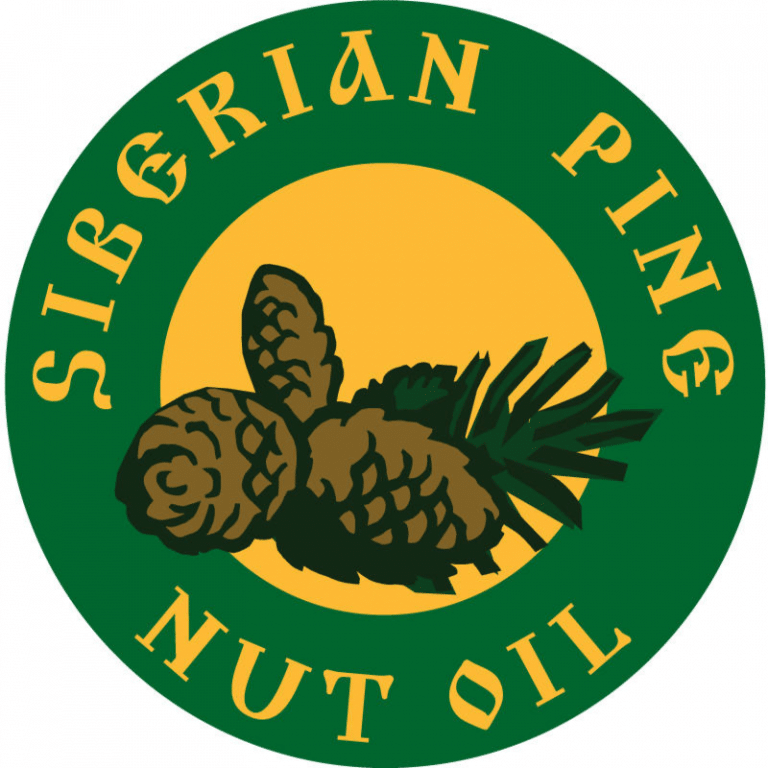Pine nut oil for psoriasis

Psoriasis is a chronic skin disease that can have many causes, including:
- psychological: stress and depression
- endocrinological: hormonal disorders
- allergic: reaction to some irritants
- diseases of the gastrointestinal tract and liver
- viral, bacterial, and fungal infections, parasites.
Such a large list of possible causes of psoriasis greatly complicates its treatment. In modern medicine, hormonal drugs are often used to treat psoriasis, which can cause additional harm to the body. Pine nut oil is a completely harmless natural remedy that helps to fight the whole spectrum of the causes of psoriasis, and also accelerates the healing of psoriasis plaques due to its anti-inflammatory effect.
Benefits for the gastrointestinal tract and the fight against toxins
Pine nut oil is necessary for the health of the gastrointestinal tract and liver. It is rich in selenium, a mineral that is involved in hundreds of important liver reactions, and zinc that is responsible for the body’s fight against any pathogens, including parasites. The Zinc + Selenium + Vitamin A complex has been proven effective in supporting the health of the liver, whose main function is to cleanse the body. [1] The amino acids contained in pine nut oil, due to the special protective function of proteins (toxin binding), have a huge detoxification potential. In addition, the intake of pine nut oil supports healthy microflora in the intestines and stomach. Thus, pine nut oil helps you to eliminate two problems that lead to the development of psoriasis: it prevents disorders in the digestive tract and liver, and also cleanses the body of pathogens.
Maintenance of hormonal levels
The hormonal system of the human body is very complex. However, pine nut oil contains nutrients that are important for almost all of its components:
- Fatty acids are involved in the synthesis of prostaglandins. These are tissue hormones, regulators of biological processes in the skin. They have an anti-inflammatory effect, which makes them especially important for the treatment of psoriasis.[2]
- Polyunsaturated fatty acids also prevent disorders on the hypothalamic-pituitary axis.[3]
- Zinc, selenium and pantothenic acid support the work of the hypothalamus, pituitary gland, and adrenal glands — organs that produce hormones.
- Vitamin A is essential for normal thyroid function.[4]
Mental health
Any person with psoriasis could notice that the disease worsens during times of stress. Nervous and depressive disorders, increased psycho-emotional stress, and sleep disturbances often lead to the manifestation of psoriasis.
Essential amino acids that are contained in pine nut oil are very important for our psychological health: tryptophan (directly related to the synthesis of the „sleep hormone“), lysine, histidine, and cysteine. In addition, pine nut oil is a source of alanine, a non-essential amino acid that is one of the main sources of energy for the central nervous system and the brain. [5]
Anti-inflammatory and softening effect
Pine nut oil not only prevents the development of psoriasis, but also alleviates its symptoms. Vitamins A, E, and B1 (thiamine) improve skin regeneration, eliminating itching, flaking and redness. Dermatologists recommend taking these vitamins to treat psoriasis. Another group of nutrients that have a softening effect on the skin are fatty acids (oleic, linoleic, and pinolenic). Due to the fact that these acids are part of cell membranes, their intake significantly improves skin condition. [6] As we mentioned earlier, fatty acids also activate the synthesis of specific hormones that reduce inflammation.
To combat psoriasis, use pine nut oil externally and internally. Take 1-2 teaspoons of the oil three times a day, half an hour before meals. Rub it on the affected skin 2-3 times a day. Within the first weeks of regular use, you’ll see a significant improvement in skin condition!
REFERENCES
[1] Bloom A, Bloom S, Silva H, Nicoll AJ, Sawhney R. Zinc supplementation and its benefits in the management of chronic liver disease: An in-depth literature review.
[2] Morin S, Simard M, Flamand N, Pouliot R. Biological action of docosahexaenoic acid in a 3D tissue-engineered psoriatic skin model: Focus on the PPAR signaling pathway.
[3] Shewchuk BM. Prostaglandins and n-3 polyunsaturated fatty acids in the regulation of the hypothalamic-pituitary axis.
[4] Zimmermann MB. Interactions of vitamin A and iodine deficiencies: effects on the pituitary-thyroid axis.
[5] Lee CJ, Qiu TA, Sweedler JV. d-Alanine: Distribution, origin, physiological relevance, and implications in disease.
[6] Brenner S, Horwitz C. Possible nutrient mediators in psoriasis and seborrheic dermatitis. II. Nutrient mediators: essential fatty acids; vitamins A, E and D; vitamins B1, B2, B6, niacin and biotin; vitamin C selenium; zinc; iron.
These articles come directly from researchers and are passed on to everybody. siberianpinenutoil.org assumes no liability for any content in these articles. For Educational purposes only. This information has not been evaluated by the Food and Drug Administration. This information is not intended to diagnose, treat, cure, or prevent any disease.

